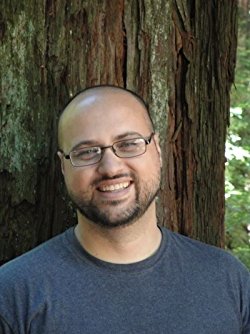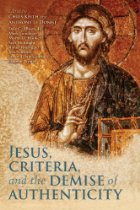
Ooh the irony the irony!! Back in 2012 when Anthony Le Donne read Vridar’s review of his book on Authenticity he could not resist dropping a complimentary comment here on Vridar:
Hi Neil, anthony here. Thanks for your very elaborate review! I realized that I hadn’t added your blog to our blogroll. This oversight has been corrected. Looking forward to more segments.
Now the same book appears in another online article and bam! Our good professor has done a 180 degree turnabout!
Anthony Le Donne has posted the a complaint that Valerie Tarico and David Fitzgerald “misrepresented” a book he edited/wrote with Chris (Dr.) Keith. (Le Donne is addressing lay critics so it is important to impress with the title of who is speaking here.)
Associate Professor Le Donne tells his blog readers that the motive for this blatant “misrepresentation” by Tarico and Fitzgerald was to serve “a clickbait agenda”. Of course. Do not engage with the critics. Impute their motives. Denigrate them as unworthy charlatans.
Finally, Dr Le Donne declares that “clearly” neither Tarico nor Fitzgerald have actually read their (Keith and Le Donne’s) book.
In fact what Tarico and Fitzgerald said about it was nothing more the blandest summary of what I expressed in depth in the review Le Donne was so chuffed to see me write.
In all, I can spot three misrepresentations by anthony (as he initially introduced himself to me and evidently prefers to be known among his peers and sympathetic readers). I love the way the associate professor avoids discussion of exactly where any misrepresentation lay on the part of the authors of the article and what the article actually said about the book.
Anthony’s accusations of misrepresentation are at: Misrepresentation.
Valerie and David’s “clickbait” link he is complaining about is found at: Evidence for Jesus is weaker than you might think.
Vridar has posted several more times on the book, too. You can see our posts discussing it at the Keith/LeDonne: Jesus Criteria archive.
I would be interested in knowing exactly what I or David Fitzgerald have ever actually written about the book is a “misrepresentation” of it.
If you enjoyed this post, please consider donating to Vridar. Thanks!


I continually get the sense that some of even the more critical biblical scholars are still 1) afraid to be entirely cut off from the community of believers, by being identified as “Jesus deniers. ” And maybe they are still 2) afraid of going to Hell.
And so they will often criticise almost each and every element of the biblical Jesus. But out of fear, they don’t want to be publicly unidentified as nonbelievers. By totally denying even a minimal historical Jesus.
In the case of Keith and Le Donne, they are both believing Christians and a survey of their blog shows that they do still very much “love Jesus”. What surprises me is Crossley’s close professional association with them. Crossley (ostensibly a nonbeliever) has criticized most strongly in his publications the way believing scholars find a way to mix their faith with their scholarship. My impression (it is nothing more than that) is that Crossley would cut a very lonely figure if he was not able to garner the respect of his believer colleagues. He needs them for his own professional status, and his own views (e.g. happily support some of the more extreme fundamentalist preferences despite being wrapped in secular explanation and models. But at the same time, the believers find one like Crossley most useful as a secular cover for their otherwise fundamentally apologetic exercise.
An interesting observation (well, it was interesting for me anyway) I made when I was in the process of questioning (and leaving) my faith was that different people had different stopping points when it came to questioning. Some would go as far as “this point” and no farther, others would allow themselves to question a little farther, but no more, etc. But none, it seemed, would dare question Jesus. It’s as if that was the ultimate base of their identities and the point at which they could not let go.
James T. & Neil:
Good points, all! James, I think your point #1 is dead on, even for openly secular scholars – as Neil aptly shows above. Blatant promotion alert: I discuss the unhappy current position of secular biblical scholars a great deal in Jesus: Mything in Action.
-DF